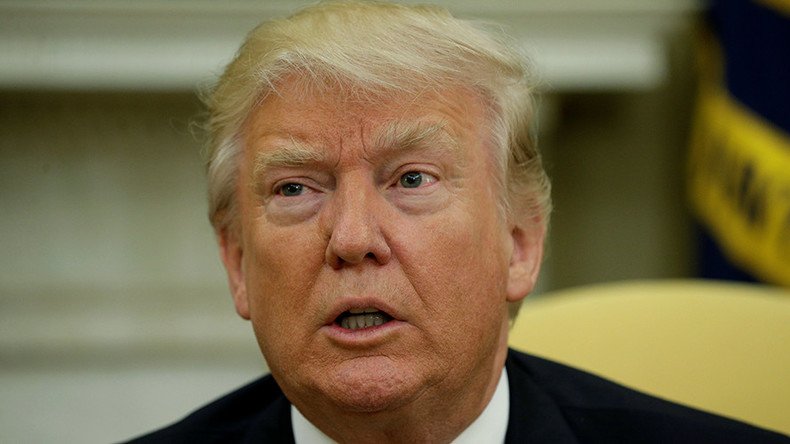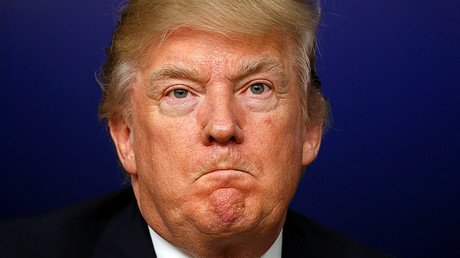‘Idiot, clown and embarrassment’: New poll shows falling ratings & scathing attitudes to Trump

The results of a recently released survey of American voters show President Donald Trump’s approval rating plummeting as his opponents use some choice expressions to describe their commander-in-chief.
The results of the survey, conducted by the Connecticut-based Quinnipiac University, show that, “idiot, incompetent and liar” were the most commonly given answers when respondents were asked for the first word that comes to mind when they think about President Trump.
In fact, of the top 20 most given words, only four (strong, great, successful and leader) were positive and four (president, businessman, business and trying) were neutral.
Other less-than-flattering descriptors were “buffoon, con-man, clown, narcissistic, bigot and embarrassment.”
The poll also showed Trump’s popularity drop to near-record lows, with only 36 percent of voters approving of the way Trump is handling his job as President, compared to 58 percent disapproving.
Trump’s fall in popularity even affected his key support base, which fell 10 points from 57 percent to 47 percent since the last time the question was posed in April.
“There is no way to spin or sugarcoat these sagging numbers,” said Tim Malloy, assistant director of the Quinnipiac University Poll, in a statement.
“The erosion of white men, white voters without college degrees and independent voters, the declaration by voters that President Donald Trump’s first 100 days were mainly a failure and deepening concerns about Trump's honesty, intelligence and level headedness are red flags that the administration simply can't brush away,” Malloy added.
READ MORE: ’Disaster’ poll shows Democrats less popular than Trump, GOP or media
Additionally, by a 54-38 percent margin, the voters polled also wanted the Democratic Party to win control of the US House of Representatives, the widest margin ever measured for this question in a Quinnipiac University poll (which leaned 5 percent in favor of Republicans in 2013).
The University interviewed 1,078 voters across the United States by phone between May 4 and May 9, with a margin of error of ± 3 percentage points.













